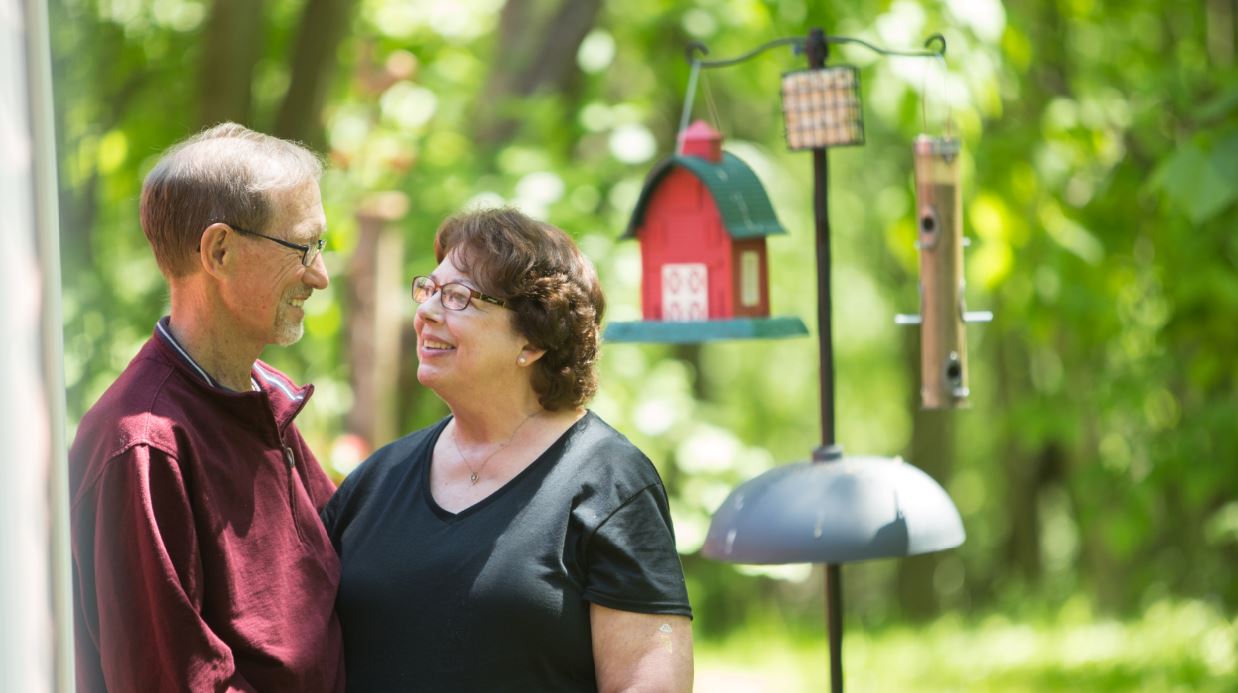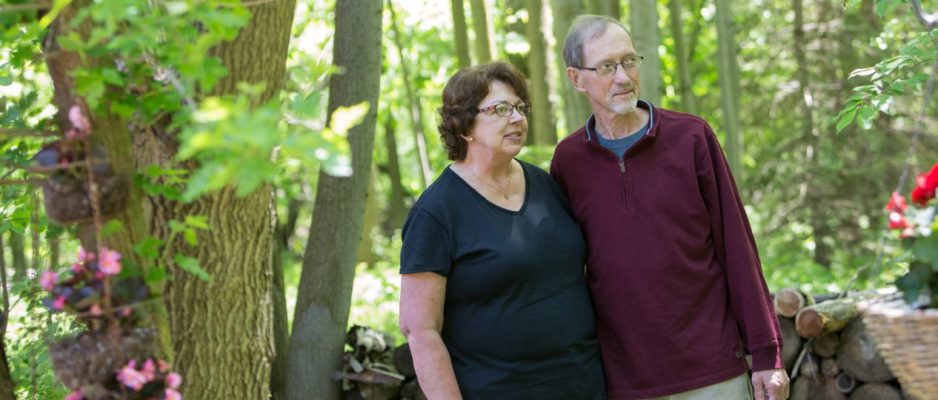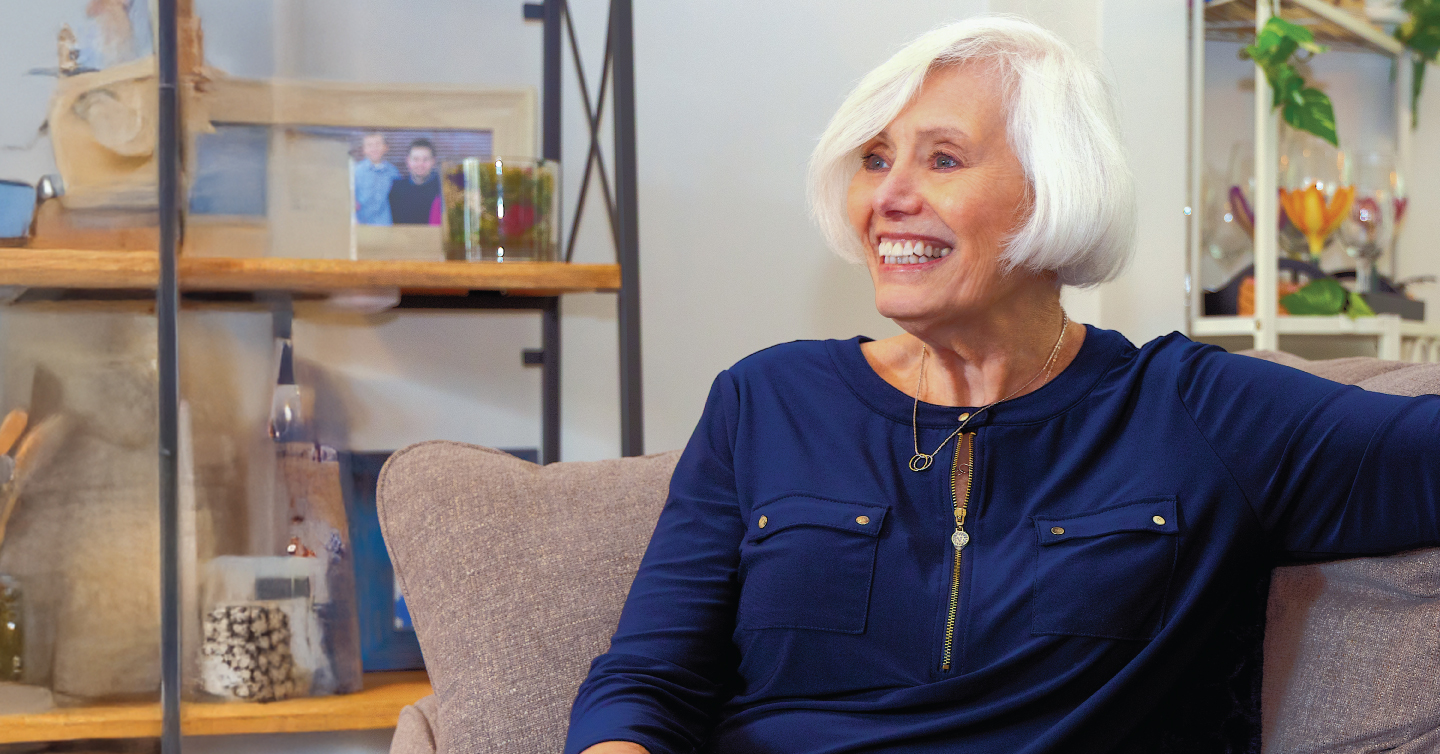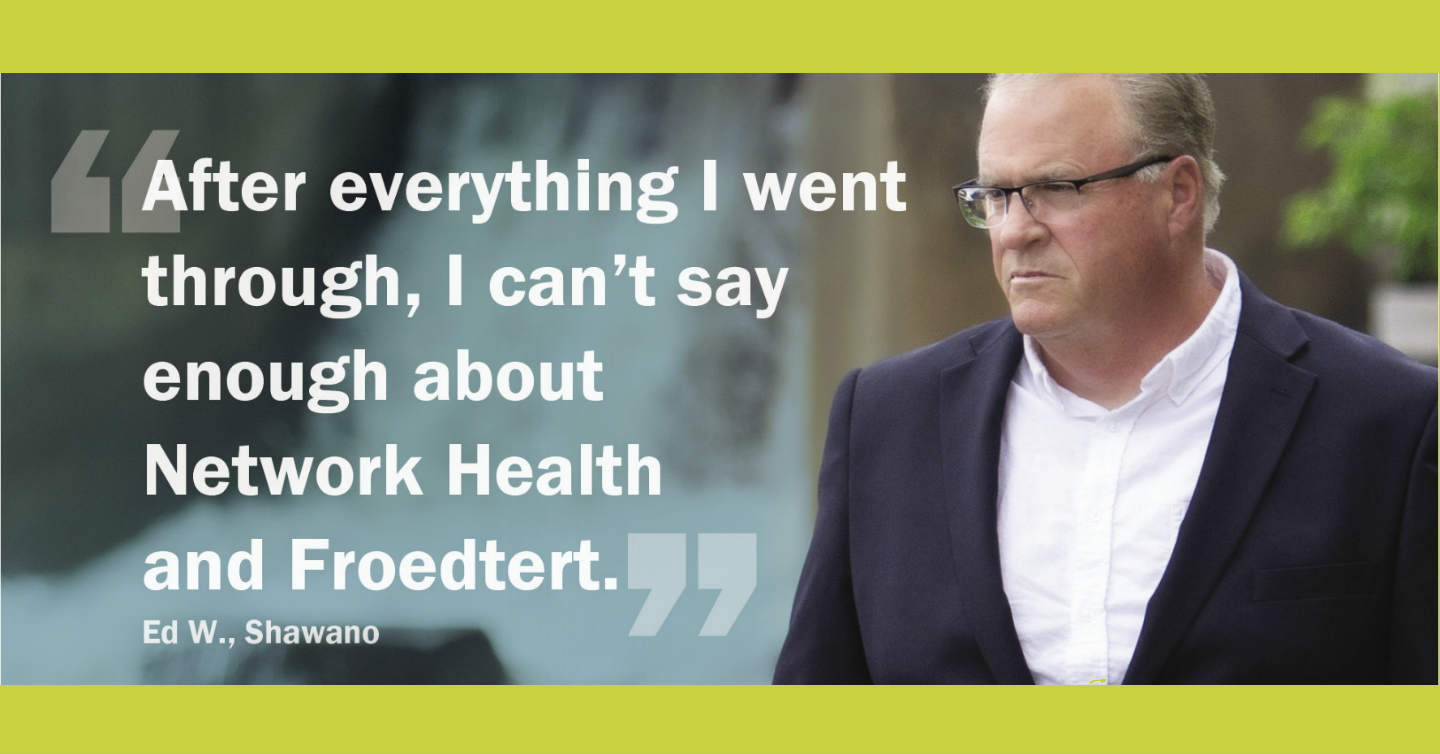Stronger Than Cancer

When a rare form of cancer threatened to take Don Sipe’s life, his Network Health care manager helped him get the care he needed from a world-class cancer center.
Don Sipe and his wife, Paula, originally from the Appleton area, relocated to the Milwaukee area to be closer to their children and grandchildren. Living in Oak Creek wasn’t only good for their family, it also meant they were closer to world-class cancer care at Froedtert Hospital.
Don and Paula have four children, the youngest are twins, nine grandchildren and two more grandchildren on the way. Don worked at RR Donnelly for over 30 years making plates for printing presses. A year and a half into retirement, Don was diagnosed with intraheptic cholangiocarcinoma. This rare form of cancer is found in the bile duct of the liver. Many times the signs and symptoms go unnoticed until the cancer is in such an advanced stage that surgery is no longer an option. Because of this, the only treatment option is an organ transplant.
In early 2016, Don and Paula were sharing a meal with their son when he mentioned to Don that his eyes looked yellow. Don wasn’t feeling ill and didn’t think much of it but Paula made him drink a lot of water the next day thinking the yellowing would go away on its own. The next day he wasn’t looking any better so she called the doctor to make an appointment. By the time they had arrived for the appointment, Don’s eyes and skin were even more noticeably yellow.
The Sipe’s were planning on leaving for a vacation in Florida and were hoping this would be a quick and easy appointment so they could be on their way. However, an ultrasound and CT scan showed cancer cells and Don went into surgery right away. He had biliary drains inserted into his liver in order to save his life. “We didn’t know what stage he was at or anything,” Paula said. Once all the biliary drains were in place, there was nothing more to be done because of Don’s cancer stage. He was then referred to a specialist at Froedtert Hospital & Medical College of Wisconsin in Milwaukee to seek further treatment.
The couple was amazed at how quickly they were able to get an appointment with a specialist. “The doctors really pulled some strings to get Don in as soon as possible,” Paula said. Once at Froedtert, the Sipe’s were overwhelmed by the large facility but once they met Don’s cancer team, they were instantly put at ease. “The people at Froedtert were excellent, they explained everything well and reassured us,” Don said. “There was no doubt that we were in the right place,” Paula said.
Don began chemotherapy treatments once every two weeks for six months while he waited for a new liver. During that time, the Sipe’s met with a social worker to go over the qualifications to be put on the transplant list. The social worker asked a series of questions including what kind of support Don had at home, if he had people that can take care of him, his lifestyle habits and many more. The medical testing to see if he was a strong candidate started in January of 2016 and every part of Don’s body was tested. He was approved for the donor list in April 2016 after he passed all of the testing and requirements. Eight months later, Don received a call that they had a liver but he was second on the list. In transplant situations, they always notify the first two candidates on the list and have them both come to the hospital.
Once at the hospital, Don underwent an 18-hour preparation which includes giving 27 vials of blood. Despite all the preparation, he was told the person on the list before him made the match and hewas sent home to wait once again. “We were disappointed, but at least we knew that you actually get a call and there is a possibility,” Paula said. Miraculously, a few days later he received another call and he was the first person on the list for a new liver. He went through another 18-hour prep and had the surgery to place the new liver. Don was monitored for a few days after to make sure his body accepted the liver. After it was decided that it was a good match, the doctor went back in and permanently attached the liver. When Don’s labs came back after surgery, it indicated there was more cancer near the pancreas.
He needed surgery to have it removed, a surgery that most hospitals would not perform due to the location of the cancer. Thankfully, the team at Froedtert stepped up to the challenge. A few days after surgery, Don was declared cancer free. “You can tell this is a very cutting edge hospital and they are right here in Wisconsin,” Paula said. “You would be surprised by all of the different license plates we see at the hospital. They come from all over the country,” Paula said. Both Don and Paula were so thankful for the expertise and support that the team provided through the whole process.
This wasn’t Don’s first experience with cancer. He was diagnosed with colorectal cancer in 1998 and after surgery, radiation and chemotherapy was declared cancer free and stayed that way for 18 years. When reflecting on being diagnosed with cancer a second time, Don said “I got through it the first time and I’ll do it again.”
In the fall of 2016, the Sipe’s sold their home in Appleton. They had been renting a house in Milwaukee very close to the hospital because of the time they had to spend there. In May 2017, Don and Paula moved into a renovated barn behind their daughter’s house in Oak Creek, the perfect place to recover.

Don is now recovering well. It’s a slow, hard process and can take up to a year for a full recovery. The three months following, Don was required to be in a germ-free zone. This meant he couldn’t be exposed to large groups of people, especially those who were ill, because his immune system was very weak. This was hard for the family because Don had to be isolated during a time when everyone wanted to see how he was doing and be there to support him.
After Don returned home from the hospital, a nurse initially came to the house three times a week. Her visits become less frequent as time goes on. A lab technician also comes to the house for blood draws twice a week. “It’s all you do and it consumes your life,” Paula said, “but the care team sure helps you, they have it down to an art.” Don takes about 15 pills per day including anti-rejection medication. Don currently has a whole team of health care professionals taking care of him because the liver affects many other organs and a transplant affects the entire body.
Don now has a daily routine in place which helps with his recovery. He gets up in the morning at 8 a.m. and takes his medicine, eats breakfast and takes a nap late in the afternoon. Three times a week, Paula and Don head to the Wisconsin Athletic Club for water aerobics. Paula attended water aerobics while Don was in the hospital and it was very therapeutic for her, a nice escape for some time to herself.
During this critical time in Don’s life, Paula was and still is his primary care giver. She had to set up appointments, make sure he was getting the home medical equipment he needed and keep him on track with his medications. Not to mention, taking care of everyday tasks like paying bills and cooking meals. Life became very overwhelming. The Sipes found out about the care management team at Network Health and called right away. Don was put in touch with case manager, Rosanne Rott. Paula couldn’t be more grateful for the support and expertise that Rosanne provided her. “We didn’t have to hassle with anyone, Rosanne took care of everything. I didn’t have the energy and was overwhelmed,” Paula said.
Network Health and Rosanne have been very valuable to Paula as a caregiver. “I was taking care of Don, I just couldn’t deal with insurance and everything else,” Paula said. Roseanne helped Paula arrange Don’s care and took care of everything on the insurance side while providing emotional support for Don and Paula through the entire process. A testament to Don’s successful recovery is that Paula used to know Rosanne’s phone number by heart but now she needs to look it up if she needs to call her. “She really went above and beyond with calling me and asking how I was doing,” Paula said. “She let me talk, and that means a lot to me.”
While Paula really appreciated the extra emotional support Network Health’s care management team provided, Don was grateful for the financial peace of mind. He explains, “If we didn’t have insurance, we would be bankrupt right now, I can’t even imagine what we would do.”
Before the transplant, everything the Sipes did was just to keep Don alive. Now they are able to focus on a more complete picture of well-being. “Our goal is to get him recovered so we can enjoy life again,” Paula said.





Discussion
There are no discussions happening yet.